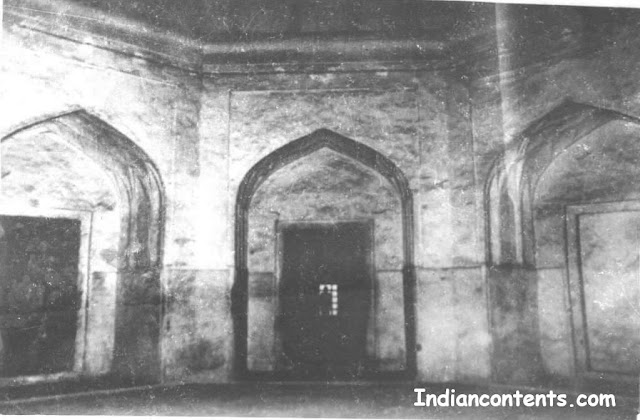Taj Mahal - Temple of Lord Shiva?
Taj Mahal -“a
monument of immeasurable beauty". Taj Mahal -"the epitome of
love". These are the thoughts that come to our mind when we hear the word
Taj Mahal. The beauty of this monument is such that it is beyond the scope of
words.
It is not only the phenomenal beauty of Taj Mahal,
but the immense love which was the reason behind its construction that comes to
our mind. Mughal Emperor Shah Jahan got this monument constructed in the memory
of his beloved wife Mumtaz, with whom he fell in love at the first sight. The
very first sight of the Taj Mahal, the epitome of love and romance leaves one
mesmerized.
But, there are
many speculation theories regarding Taj Mahal. A few historians and researchers
do not accept the romantic love story of Shah Jahan and Mumtaz Mahal. In this
article we shall discuss a few hidden secrets of Taj Mahal which will shock
you. These secrets do question the historical description of Taj Mahal.
Mystery of Taj Mahal
One of the most
horrifying secret of Taj Mahal is that it was built much before Shah Jahan was
the king of Agra. There is a book called, The true story of Taj Mahal which was
written by a professor called Oak. With his inquiries he claimed that the Taj
Mahal is a corrupt version of Tejo Mahalaya, or Lord Shiva’s Palace. According
to the book, the fort was originally a temple of Lord Shiva built by the early
Rajputs of Agra. The temple was then conquered by Shah Jahan when he won a battle
against the Maharaja of Jaipur, Jai Singh.
Taj Mahal original name was Tejo Mahalaya, Ancient Siva Temple built in 1155 AD
 There are certain
things which we do not miss when we visit Taj Mahal. Some of them are the
trident (Trishul) pinnacle on the dome and the sacred, esoteric Hindu letter
"AUM" carved on the exterior of the wall of the sanctum sanctorum now
occupied by the cenotaphs. This is a
very challenging secret of Taj Mahal which is not yet given any authenticity by
any government bodies.
There are certain
things which we do not miss when we visit Taj Mahal. Some of them are the
trident (Trishul) pinnacle on the dome and the sacred, esoteric Hindu letter
"AUM" carved on the exterior of the wall of the sanctum sanctorum now
occupied by the cenotaphs. This is a
very challenging secret of Taj Mahal which is not yet given any authenticity by
any government bodies. In his own court
chronicle, Badshahnama, Shah Jahan admits that an exceptionally beautiful grand
mansion in Agra was taken from Jai Singh for Mumtaz’s burial. Using captured
temples and mansions, as a burial place for dead courtiers and royalty was a
common practice among Muslim rulers.
In his own court
chronicle, Badshahnama, Shah Jahan admits that an exceptionally beautiful grand
mansion in Agra was taken from Jai Singh for Mumtaz’s burial. Using captured
temples and mansions, as a burial place for dead courtiers and royalty was a
common practice among Muslim rulers.
There is an
another evidence which tells that the Taj Mahal is not built by Shah Jahan. A
professor from New York, Marvin Miller took a few samples of river side doorway
of the Taj for carbon dating test. And the test revealed that the door was 300
years older than Shah Jahan.
Vincent Smith
records in his book (Akbar the Great Moghul) that “Babur’s turbulent life came
to an end in his garden palace (Taj Mahal) in Agra in 1630”.
 Babur’s daughter
Gulbadan Begum in her chronicle titled ‘Humayun Nama’ refers to the Taj Mahal as
the Mystic House. Babur himself refers to the Taj in his memoirs as the palace
captured by Ibrahim Lodi containing a central octagonal chamber and having
pillars on the four sides. All these historical references allude to the Taj Mahal
100 years before Shahjahan.
Babur’s daughter
Gulbadan Begum in her chronicle titled ‘Humayun Nama’ refers to the Taj Mahal as
the Mystic House. Babur himself refers to the Taj in his memoirs as the palace
captured by Ibrahim Lodi containing a central octagonal chamber and having
pillars on the four sides. All these historical references allude to the Taj Mahal
100 years before Shahjahan.
Another person Johan
Albert Mandelslo, who describes life in Agra in 1638 in detail never told that
Taj Mahal was being under constuction though it is commonly erringly asserted
or assumed that the Taj Mahal was being built from 1631 to 1653.
There is another mystery of this Taj Mahal. Like an historic
fort, it also has many secret passages and rooms. There are many rooms in the
fort or tombs, which are supposedly kept, closed since the time of Shah Jahan.
According to researchers, these rooms contain proof that the tomb was a temple
of Lord Shiva. Some also say that one of the rooms contain a headless statue of
Lord Shiva.
Whatever the truth is, but this is a very mystery filled secret of
Taj Mahal.









0 Comments